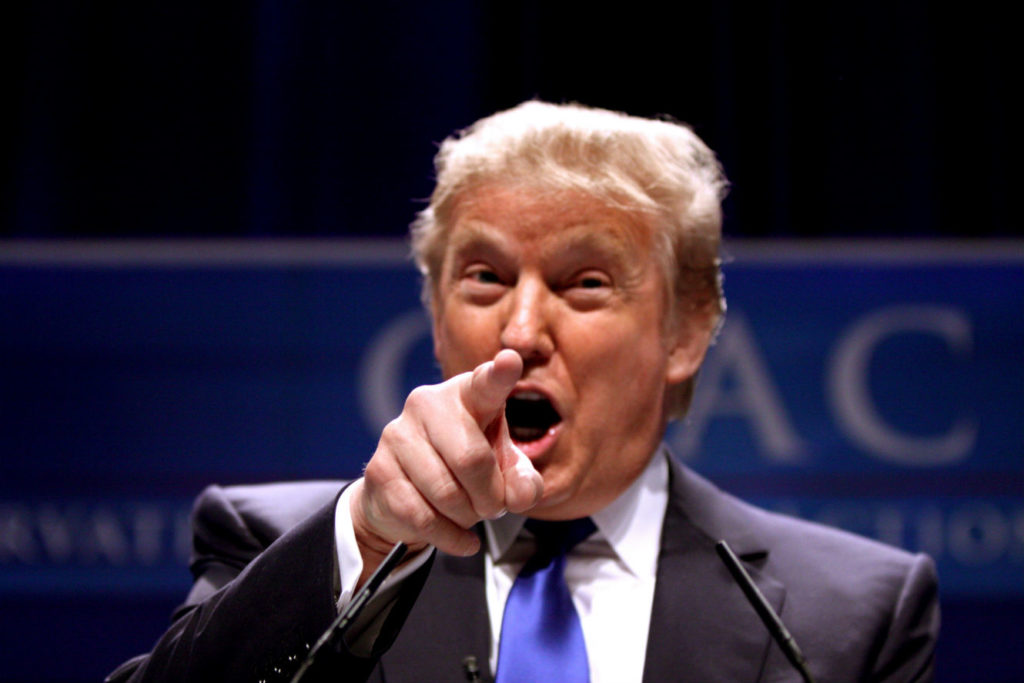13 Questions on the Age of Trump

With Donald Trump as president-elect, there are major questions about the extent to which he truly believes in the heterodox foreign and defense policy positions he expressed as a candidate, not to mention his ability to act on those convictions as president. I have mapped out the big questions facing his transition team and his administration as we move forward.
1. Who will Trump choose as secretary of defense, secretary of state, and national security adviser? Selecting experienced and steady hands, such as former National Security Advisory Stephen Hadley, could signal that Trump will value at least some experienced management at the top. Selecting the divisive Lt. Gen. Mike Flynn for a senior position —perhaps national security advisor — will not do much to calm nerves in Washington (something Trump has admittedly not shown any interest in doing). Once those appointments are made, to what extent will Trump involve himself in the big questions on foreign and defense policies? Will he largely delegate these functions of his office? Will he micro-manage?
2. How will Trump treat key European and Asian allies? Will he follow through on dramatically reshaping these alliances? Will he try to get them to essentially pay for American extended deterrence as he has indicated? What of the Obama administration’s longstanding efforts at assurance? Does all that go down the toilet? What are the different scenarios we can expect along these lines?
3. Will Trump strengthen America’s relations with long-term partners in the Middle East? Both U.S.-Israeli and U.S.-Saudi relations have been strained in recent years, even though military assistance to both nations has reached unprecedented heights during the Obama administration. What will Trump do differently? Will Trump support a two-state solution?
4. What will happen to the Iran deal? Will he cancel it as promised and seek to negotiate a new deal? If so, how will he balance this aim against the fact that the deal was multi-lateral?
5. What will global counter-terrorism policy look like under his leadership? Trump has signaled that counter-terrorism will represent the center of gravity of his foreign policy doctrine. Will we see a return to extraordinary rendition, enhanced interrogation methods, and torture? Will the Trump administration shift away from Obama’s light-footprint approach, which combines airpower and special operations forces to tackle terrorist threats? Will he use drones for targeted killings even more promiscuously than Obama?
6. On a related note, will the war against the Islamic State meaningfully change course as Trump has promised? He has loudly rejected the Obama administration’s approach and expressed contempt for the generals running the operation. What will be different with him in charge?
7. How will Trump foster a productive relationship with Mexico, given his statements? Will the United States actually build a border wall? How will that impact relations with its southern neighbors?
8. Will the Trump administration really mark the death knell of wide-ranging U.S. free trade agreements, from NAFTA, which he promises to renegotiate or withdraw from, to TTP, which he promises to nix? What will this mean for U.S. leadership in the word? Will Congress play along?
9. What will be Trump’s approach to defense spending, force structure, and military modernization? Will Congress actually agree to spend more on defense? Dave Barno allowed me to share something he said in the War Hall (a gated forum that forms a part of the War on the Rocks membership):
Trump has magisterially pronounced large end strength and budget increases for the services as well, but I’m not seeing that get through the fiscal hawks (note: Republicans) in Congress given the budget-busting price tag. And why would you even want to expand the U.S. military if you plan to be less forward deployed, less committed to alliances, less engaged around the world, and more isolationist?
10. What of all of the military technology efforts lumped under the “third offset strategy”? Will there be continuity in a Trump administration?
11. Will Trump undertake personnel reforms in the Department of Defense? Signature efforts undertaken during the Obama administration, including Force of the Future and gender integration of ground combat units, face an uncertain future.
12. How will he approach relations with Russia? Trump has said that good relations with Russia would be a major priority should he win the White House. What will he do differently, compared to the past two administrations? If he pursues a “reset,” how will it differ from Obama’s? How will Trump improve relations while simultaneously preserving U.S. commitments to allies, especially on Europe’s eastern flank? Will the United States continue to support Ukraine against Russian aggression and sanctions on Russia? Will his administration seek to enact arms control deals, focus on shared interests, and make hardnosed deals on areas where interests part ways? Will he seek greater cooperation with Russia in settling the Syrian civil war? Will he give in on missile defense in Europe?
13. Finally, what of America’s competitive relationship with China? Trump has accused Beijing of everything from fabricating climate change to gutting American industry. Will he be aggressive with China on trade but accommodative on Chinese interests in the South China Sea?
Ryan Evans is the editor-in-chief of War on the Rocks and he has been drinking more than usual this week.
Image: Gage Skidmore

